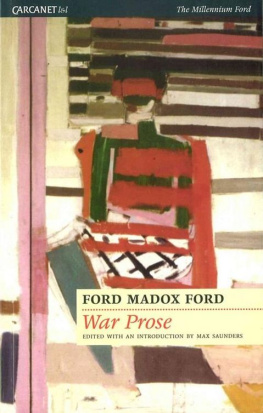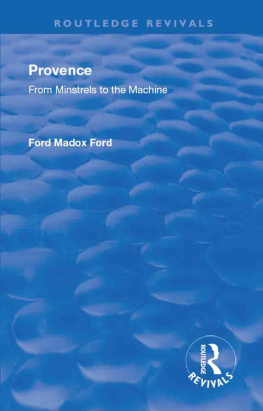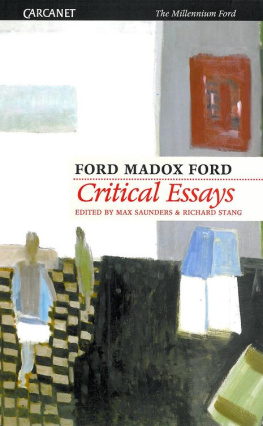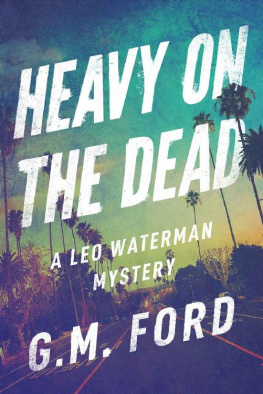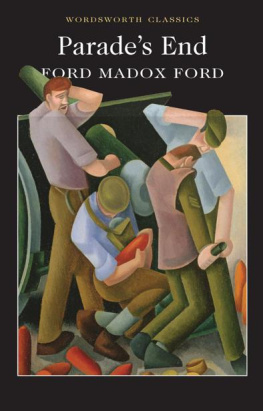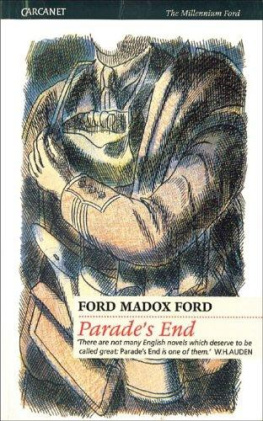For there is no new thing under the sun,
Only this uncomely man with a smoking gun
In the gloom
What the devil will he gain by it?
Digging a hole in the mud and standing all day in the rain by it
Waiting his doom,
The sharp blow, the swift outpouring of the blood,
Till the trench of grey mud
Is turned to a brown purple drain by it.
[]
And what in the world did they bear it for?
I dont know.
And what in the world did they dare it for?
Perhaps that is not for the likes of me to understand.
[from In October 1914, later titled Antwerp]
Man is to mankind a wolf homo homini lupus largely because the means of communication between man and man are very limited. I daresay that if words direct enough could have been found, the fiend who sanctioned the use of poisonous gases in the present war could have been so touched to the heart that he would never have signed that order, calamitous, since it marks a definite retrogression in civilisation such as had not yet happened in the Christian era. Beauty is a very valuable thing; perhaps it is the most valuable thing in life; but the power to express emotion so that it shall communicate itself intact and exactly is almost more valuable.
[From China to Peru (on Pounds Cathay),
Outlook, 35 (19 June 1915), pp. 8001]
Contents
Six Short Stories:
The Scaremonger
Ford Madox Ford is now recognised not just as a central modernist author, but as one of the major writers about the First World War. His best-known treatment of war, the sequence of four novels known collectively as Parades End, has been regularly in print since 1948, when perhaps it felt newly relevant after a second world war. It has been achieving broad recognition as the best English novel about the First World War. William Carlos Williams wrote that the four novels constitute the English prose masterpiece of their time. Malcolm Bradbury describes Parades End as the most important and complex British novel to deal with the overwhelming subject of the Great War. He judges it the greatest modern war novel from a British writer; Samuel Hynes calls it the greatest war novel ever written by an Englishman.
It was unusual for a man of forty-two to serve in the line. Though Fords experience of combat was limited he was at the Front for about two months he took part in the Battle of the Somme, and was in the Ypres Salient. He was frequently under bombardment, and suffered from concussion, shell-shock and lung damage. His army experience was varied; and it proved to be the decisive episode in his life.
The shadow of the First World War fell on almost everything Ford wrote after the 4th of August 1914. When it broke out, he was finishing his Edwardian masterpiece, The Good Soldier. The date of the 4th August sounds through that novel like the death-knell of the era. The story ends in private devastations madness, enervation and death which have been read as metaphors of the public cataclysm. Ford rightly saw the war as the defining experience of technological modernity. The world before the war is one thing and must be written about in one manner, he wrote: the after-war
Ford was at Mary Borden Turners literary country-house party near Berwick-upon-Tweed when war was declared. Other guests included Wyndham Lewis and E. M. Forster. Ford was writing weekly Literary Portraits at the time, and registered his shock at the conflict immediately. His wartime journalism was extraordinarily far-sighted. (Some excerpts are included here.) Within a few days of the outbreak, he was pondering the effects on his mind, on national psychologies, on literature and society. This moving between questions of war and questions of psychology and aesthetics is, as we shall see, deeply characteristic of all Fords war writings. Even before he saw active service, he realised that the war presented a new kind of challenge to literature, and to his own form of literary impressionism in particular.
Fords response to the war was as much European and transatlantic as it was English or British. His allegiances were cosmopolitan and complex. He was the son of a German father and English mother. He had tried to acquire German citizenship in 1912 (in order to get divorced). Like his father, Francis Hueffer, and his English grandfather, Ford Madox Brown, he had a deep love of France, and was appalled by the thought of its devastation. His multiple sympathies are evident in many of the pieces here, which remind us that Parades End too is an international work, adopting the techniques of European and American modernism to render France and Germany as well as Britain.
In his journalism Ford took a controversial stand against the prevailing rhetorical hysteria, urging that the war should be fought in chivalric mode: against a gallant enemy. This was brave for someone with a German surname. (He remained Ford Madox Hueffer throughout the war, only changing his last name around the time of the Versailles peace treaty.) His anti-propaganda stance may have suggested that he would be a useful propagandist. Soon afterwards, he was recruited by his friend Charles Masterman, the Liberal Cabinet Minister put in charge of British propaganda. The Literary Portraits turned into sketches of German and French culture, and these were revised into two large propaganda books in 1915, When Blood is Their Argument: An Analysis of Prussian Culture, and Between St Denis and St George: A Sketch of ThreeCivilisations. His propaganda was of an unusually cultural and humane kind. He had a horror of the rhetoric denouncing the enemy as mad dog, mercenary, brute, tyrant. He claimed that his poem On Heaven was circulated by the Ministry of Information to cheer up the troops. Some of the pieces here should perhaps be read in a similar spirit. Yet he soon found himself affected by the tide of popular patriotic aggression. In a fascinating exploration of the origins of hatred (which he characteristically relates to aesthetics and to sexual conflict), he turns his formidable psychological acumen on himself, revealing himself as disturbed to find that after only a few months of war he too had begun to wish Germans dead.
There is thus a large body of work written between August 1914 and Fords joining the army. Most of it has been excluded here, partly for reasons of space, but also to give a more coherent concentration on the effects and after-effects of first-hand experience of military life and military conflict. But I have included the passage from Between St Denis and St George about his state of mind as war was declared; two propagandistic stories that give a sense of the rumours and sentiments that were circulating; and excerpts from his Literary Portraits that were too personal to be incorporated into the propaganda books.
Ford enlisted in the summer of 1915, and got his commission as a second lieutenant in the Welch Regiment (Special Reserve). He probably took an introductory course at the Chelsea Barracks, before joining his battalion for training first at Tenby, then Cardiff Castle. He had to wait until 13 July 1916 before he left Cardiff for France. The journey is described here in the propaganda article, Pon ti pri ith.
At Rouen Ford was attached to the 9th Battalion, and sent to the Somme, where the fiercest battle in British military history had been raging since 1 July. He wanted experience of the front line, but his CO thought he was too old, and stationed him with the battalion transport, just behind the front line near Albert. He described the battle in a letter to Lucy Masterman on 28 July:
We are right up in the middle of the strafe, but only with the 1st line transport. We get shelled two or three times a day, otherwise it is fairly dull indeed, being shelled is fairly dull, after the first once or twice. Otherwise it is all very interesting filling in patches of ones knowledge [] The noise of the bombardment

